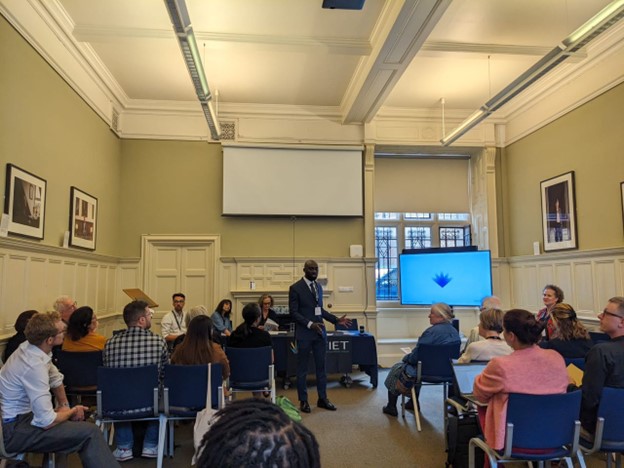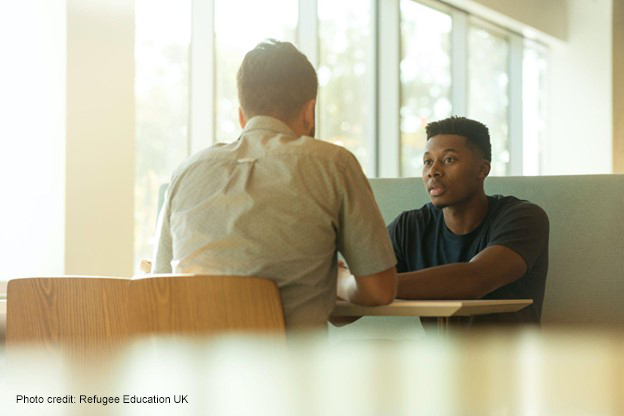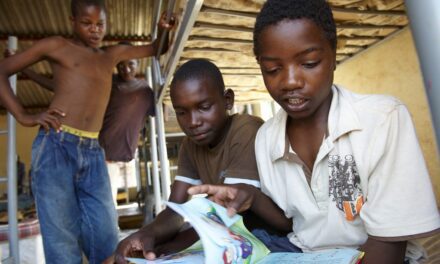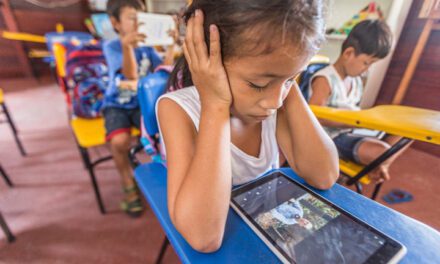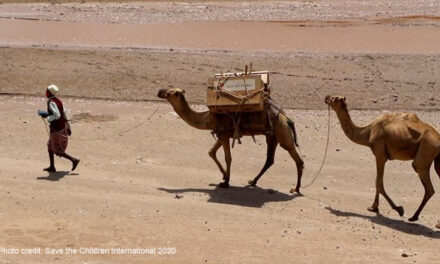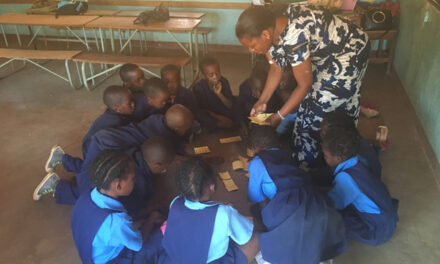This blog was written by Hammed Kayode Alabi, Senior Educational Mentoring Coordinator at Refugee Education UK (REUK). For the 2023 UKFIET conference, 28 individuals, including Hammed, were provided with bursaries to assist them to participate and present at the conference. The researchers were asked to write a short piece about their research or experience.
At the UKFIET conference, I presented my paper “My Foundation Starts Here: What Foundational Learning Means for Young Refugees and Asylum Seekers” at the NORRAG symposia, in preparation for the full launch of NORRAG Special Issue 09: Foundational Learning: Current Debates and Praxes.
It was an opportunity to reflect on what foundational learning means for young people who have fled war or persecution and found themselves in the UK. After my presentation, someone in the audience asked my panel a question “What is the barest minimum for foundational learning?” I reflected on this question and in the context of my work as an Educational Mentoring Coordinator at Refugee Education UK (REUK), where I connect unaccompanied asylum-seeking children and refugee young people to a mentor-trained volunteer who supports them for an hour a week for an initial period of 6 months with their education such as homework, English language and Maths. This is individualised one-to-one support and can be renewed after 6 months. Some go on to meet for more than 2 years.
Some of my young people do not speak English from the country they are coming from, some have not had access to education, or for some, their education has been disrupted and they have spent nearly a year or two travelling across countries and in the most tormenting or difficult situations. When they reach the UK, they have to navigate the asylum system, find legal representation for their asylum case, try to get into education that is alien to them and navigate the accommodation, health and transportation system in the UK. Some found their age disputed which means a young person under 16 can be referred to as an adult, which affects how they access education and the support they are supposed to get as a child. So, what does foundational learning mean to these young people and what should the barest minimum be for these young people? Before we answer this question, it is important to define what foundation learning means.
I have read several articles and papers that define foundational learning and I noticed there are different sides of the coin to the definition or camps as one of the audiences mentioned in their reflection during our symposia. Some definitions reflect developing basic literacy and numeracy skills i.e., which then serve as a building block to develop higher order skills such as cognitive adaptability, whilst others argued foundational learning to be transferable skills such as confidence building, negotiation skills, etc. Some camps advocate for foundational learning to represent early childhood education (see Antoninis, 2021; Beehary, 2021; Herbert, Saavedra, Marr, and Jenkins, 2021). In all of this, what does this mean for unaccompanied asylum-seeking children and refugees when there is no foundation in the traditional sense or when their foundation has been truncated by displacement? What does it mean to them in a new country such as the UK? How can they build the barest minimum? These were my reflections as I thought through my answers to what the barest minimum should be for the young people that I work with.
My answer was that we need to think about foundational learning in terms of day-to-day interaction with their environment or community. So, if I am learning how to read, write, and speak, how does that translate or transcend into how I am able to read doctors’ prescriptions when I visit the doctor? How does that translate into advocating for myself when I am filing for my asylum claim, or when I am put in a lower-level class in college, or if I do not want a specific kind of support? How does that translate into agency building because I understand the language of the country I am seeking asylum in? How do I identify opportunities for personal and professional development and growth? How do I use the public transport system? Likewise, how am I able to use numeracy skills to develop savings habits, manage my finances better, and make better financial decisions? This is what should be the barest minimum. The barest minimum for foundational learning should transcend beyond being able to read or memorise words or numbers to understanding words in the context of day-to-day interactions.
To move from discourse to reality, I would like to use the Refugee Education UK (REUK) mentoring programme as a case study. I met so many young people when I started as an Educational Mentoring Coordinator at Refugee Education UK about 2 years ago. There was a young man who struggled with his English but was willing to learn and also interested in becoming an IT professional. I remember how on our first meeting, it was a struggle to communicate or articulate what he wanted from education, so I connected him to a mentor who supported him, he enrolled in college, and through the support of his mentor, he found Duolingo, BBC, and other learning platforms. Outside of mentoring, he would practice and after developing his language skills i.e., English, he was able to enrol himself in a basic coding course, which he completed. Almost 2 years down the line, he visited me in the office and showed me the coding course he had completed and now wants to enroll in an 800-hour programming course. He could also request for whatever he needs in college and knows who to reach out to within his network if he needs support or help and for me, this is what the barest minimum should be, especially for young refugees and asylum seekers.
It is the ability to use literacy skills to aspire for a better future or read information that enables you to advance your personal and professional development. So educational institutions not only need to consider the individual needs of young refugees and asylum seekers (Alabi, 2021) when filling the gaps of foundational learning but also build or develop a curriculum that helps young people who have fled war to develop the necessary foundations needed to succeed and integrate into the larger society i.e. the UK.
In conclusion, I argue there is a need to redefine what the barest minimum should be and avoid universalising the definition of foundational learning and rather consider the interrelationship of how foundational learning interacts with everyday living, especially if you are a displaced young person living in an environment that is alien to you and trying to navigate the education system and your current environment.

